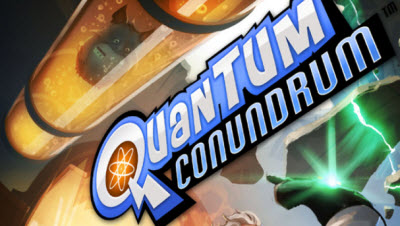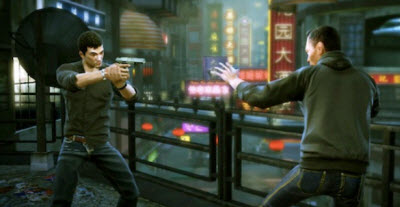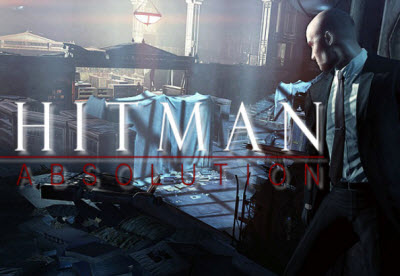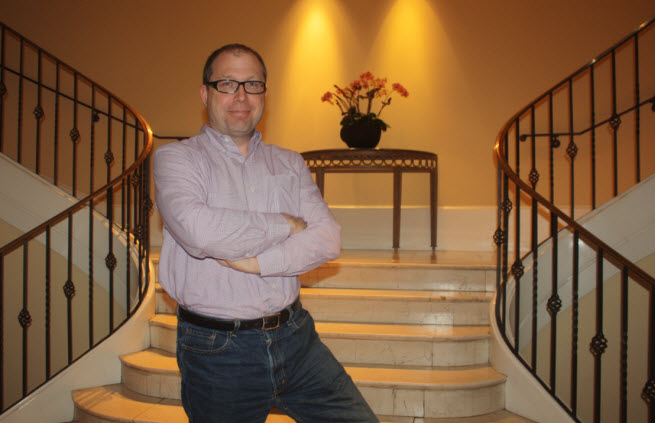Mike Fischer is the president and chief executive of the U.S. division of Square Enix. The Japanese parent company is the publisher of hit video games such as the Final Fantasy series, but it isn’t satisfied with just a strong position in Japan and Europe. The company is “westernizing” its content much the same way that Japan’s Sega tried to do. But Square Enix, which bought Eidos and has a number of North American game developers, is having an easier time crossing borders and is cherry picking the titles that make the most sense. The Japanese company is still making money (while others are losing money), and Fischer says he can choose the best of the content from Japan and Europe and then republish it in North America. But Fischer is also aware that the video game market is changing, and big publishers have to change with it. Among the big titles coming is Sleeping Dogs, which Square Enix picked up after Activision canceled it (under the previous name True Crime: Hong Kong). Here’s an edited transcript of our conversation.
 GamesBeat: You have a big line-up coming. How do you view these games in terms of westernizing your content?
GamesBeat: You have a big line-up coming. How do you view these games in terms of westernizing your content?
Mike Fischer: I think this is a great time to be answering this question. It would have been a lot harder a year ago. We had MindJack and Lord of Arcana (pictured right) to brag about. I think you’re seeing a couple of different trends and a couple of different strategies all coming to fruition at the same time. One of them is obviously the blending of East and West. So you’ve got Kingdom Hearts here for the 3DS right up against Hitman Absolution and Sleeping Dogs (two major upcoming titles).
I’m really lucky to be in charge of the U.S. market and getting the benefit of these big investments made by Square Enix Europe, which used to be Eidos of course, and Square Enix Japan. I’m supplement that by adding games that we’re sourcing and producing here in the U.S. The great thing for me is, because I have the benefit of these massive triple-A blockbusters, I don’t have to try to replicate that. So I can go out and sort of seek lower-risk, smaller-scale intellectual property investments that obviously I hope will eventually, over time, grow into big franchises of their own. You take a look at something like Quantum Conundrum (pictured below). We’re small enough so that we can really give a title like that the attention and love that it deserves. But we’re big enough that we can put the resources behind it so it gets an enormous amount of attention. That’s the kind of added value that I’m looking to bring to the company.
 GamesBeat: The range is from a small iPhone game all the way up to a console title. That’s the amount of freedom that you have?
GamesBeat: The range is from a small iPhone game all the way up to a console title. That’s the amount of freedom that you have?
Fischer: That it is. I don’t go in and say, “I want an iPhone game,” or “I want an Android game,” or “I want a downloadable game.” I’m simply looking for great IP investments. And finding the right platform to fit them. And the great thing for me is there are just fewer business model limitations than we’ve ever had in the past.
GamesBeat: What’s the state of progress into those games and those business initiatives?
Fischer: So far so good. Ultimately the consumer’s going to judge, right? The two examples that you see here today are Motley Blocks and Quantum Conundrum. And they’re very different. Quantum Conundrum is a downloadable game, it’s from Kim Swift, the creator of Portal, it’s a very whimsical puzzle platformer game. Motley Blocks is a very abstract. I don’t want to give it a blank-meets-blank type of explanation. B, you know, it’s a very unique, fun, quick to play phone game, but it also incorporates some user-generated content opportunities that put it in a class of its own. We’re not looking for one model of success. Our point is that these new platforms allow us to reach audiences that, up until now, have either been very difficult to reach or very uneconomical to reach. We’re always going to need the scale of these big blockbusters like Hitman and Tomb Raider, Sleeping Dogs and Kingdom Hearts, to really give us the scale that we need to make all of these games successful.
GamesBeat: EA has this approach where they seem to want a certain percentage of revenue to come from digital, in a certain time frame. They’re in a big rush. They think all of the industry is going in that direction. Do you guys have that same sense of urgency, that maybe the revenue mix is going to change drastically for the whole industry?
Fischer: To EA’s credit, I think they’ve invested. I can only speculate on their actual motivations. But I think it’s a great way to create a call to action internally for teams. I’m a content guy, not a platform guy. I’m simply seeing these platforms as opportunities to bring content to market that wasn’t possible before, and to monetize audiences that were out of our reach in the past.
I’m not trying to set an arbitrary goal. I think the retail market is still dominant. Hitman, Tomb Raider, Sleeping Dogs, Kingdom Hearts are all massive retail hits. I don’t think it’s an “or” solution anymore, it’s an “and” solution. I think we could have a big online hit tomorrow and shift a massive proportion of our games online. And then we could have a massive retail hit the quarter after that and the bar swings the other way. That’s kind of like asking yourself, you know, is Warner Bros. or Fox primarily a theatrical company or primarily a home video company? What percentage of their revenue is the right mix? I think they just want a hit movie. I just want a hit game.
GamesBeat: How about on the other trend of titles moving from east to west, or west to east?
Fischer: It’s fascinating for me to look at the difference in approaches that creators take for their games. I think the western developers tend to be built around the paradigm of the independent studio contracted with a big publisher, payments made on a milestone schedule, based upon a massive game development document. You ask a western developer, ‘why is this game going to be great?’ Boom, here’s a 400-page document.
I’m exaggerating for effect. I remember a conversation many years ago where someone asked one of the Japanese developers I was working with, “Why do you think this game is going to be great?” And he said… “Ore no game dakaran da yo!” Because it’s my game! Because I made it! There was a sort of auteur model. ‘I’m going to shut the doors and come out when it’s great.’ I think the ideal scenario is somewhere in between there. Getting it just right is like balancing on a ball. I think it’s like the platforms, I don’t think there’s any one model that’s right for every developer. But what I’m seeing that’s really nice is, some of the best practices from each team getting shared with the others, and some of the creative dialogue that can happen as you have folks that are more exposed to different ways of making games.
 GamesBeat: Sleeping Dogs (formerly Activision’s True Crime: Hong Kong) has an interesting history there. How did you redirect that games and put it on its current path?
GamesBeat: Sleeping Dogs (formerly Activision’s True Crime: Hong Kong) has an interesting history there. How did you redirect that games and put it on its current path?
Fischer: The game was, in a sense, discovered. I’m making air quotes: ‘discovered’ by the folks in Wimbledon. The minute they showed it to us, we really felt like we had found a diamond in the rough. Obviously the game was originally True Crime: Hong Kong from Activision. I can’t speak to why they let that go. I’m not going to speculate on their behalf. All I know is, they’ve gotta be crazy. Because this game is just fantastic. The scale and scope of the game really encompasses all of everything you’d want to do in Hong Kong. The acting, the story, the characters are very deep.
There’s clearly a lot of inspiration from [the movies] The Departed and Infernal Affairs. You play an undercover cop who starts to feel mixed loyalties. But the open world feels like Arkham City, the combat feels as good as a fighting game, the driving is as good as a Need for Speed, and the story is every bit as rich as compelling as a Mass Effect. All in one game. In a sense it reminds me a little bit of Dead Island, which Square Enix America did the sales and distribution for. Nobody had heard of that game coming into E3, and in the U.S. alone it sold over 2 million units. It’s great to have a sleeper.
GamesBeat: Because of the great trailer for Dead Island?
Fischer: The game had to deliver at the end of the day. It offered, I think, role-playing-game-style upgrades, online co-op play, the zombie setting. It’s not a digital masterpiece, but it’s what everybody wanted. It’s great to bring out a Tomb Raider or a Final Fantasy, but the challenge there is, everybody expects it to be so great, right? Just meeting expectations is a challenge. Surpassing them requires masterful work.
The thrill that I love in bringing out a game like Sleeping Dogs is when nobody sees it coming. And then, boom, it’s the surprise of the holiday. The game’s coming out early in the year, so it has time to find its audience. We’re in a world where everything’s about social media, word of mouth. And yet you still see marketing presentations that are built around how big your TV campaign is. And again, it’s not an either/or. You have to have both components.
But we live in a world where word of mouth about a great game like Sleeping Dogs, combined with what I expect will be very good reviews and a strong marketing campaign, coming out early in the year, we’ve got the elements for a success. There’s something wrong when someone can tell you 12 months out what all the great games are going to be the next holiday. That means there’s no surprise, there’s no innovation. So it’s nice to come in here with big franchises like Hitman and Tomb Raider that everyone’s known about, Kingdom Hearts, everyone’s expecting. But also to bring in new stuff like Sleeping Dogs and Quantum that bring a little bit of innovation and hopefully will show our industry that consumers are still hungry for something new.
 GamesBeat: I imagine Hitman: Absolution has a lot of buzz already. Something like that may not need that kind of help; it’s already got the ball rolling.
GamesBeat: I imagine Hitman: Absolution has a lot of buzz already. Something like that may not need that kind of help; it’s already got the ball rolling.
Fischer: You know, we’re a publicly traded company, so no matter how big people’s expectations are, it’s my job to beat it. So all that means is… [laughter] the numbers that I have to deliver are just that much higher. I wish there was a game in my lineup that I could just kick my feet up and let itself. There’s no game that big, and probably never will be.
GamesBeat: Has it seen a smoother development than, say, Sleeping Dogs?
Fischer: Hitman has been in development a long, long time. Some of that’s been smooth; some of that hasn’t been. But the fortunate thing is, we gave this game the time and the resources that it needed to be great. You saw the Glacier engine mentioned at the beginning of the trailer. The crowd dynamics that you saw — where the guy’s just having to literally push his way through people — show all of them reacting individually. That’s not just like walking down a busy street. That’s like being in a really crowded concert type of environment. That type of technology takes time to get right, and we took our time to get it right. The same thing applies to Tomb Raider, right? We just announced the game’s going to be coming out in 2013. We could ship that game now, it’s so good. So imagine how awesome it’s going to be when it hits the market.
GamesBeat: Is there an explanation for that, too? As far as why it needed to go out further?
Fischer: I can look you in the eye and tell you, honest to goodness, we want this to be the best game of the generation. And the time that we’re giving it is going to allow that to happen. Look, you’re going to see the game at E3. Tell me if you think I’m blowing smoke your way. It’s really that good.
GamesBeat: Yeah, I think as long as it doesn’t go to three E3s, right…? [big laughs]
Fischer: I think there is kind of a three-E3 rule. No game has ever been to three E3s and turned out to be a hit. You’ve got a good point there.
GamesBeat: We waited nine years for Diablo III…
Fischer: Yeah, but was it at E3?
GamesBeat: I don’t think so. Not until the last couple years. So yeah, it’s a diverse lineup; it’s a big slate. You guys are one of the only Japanese companies to make some money last year.
Fischer: It’s a hit-driven business. If there was a formula to success, all the companies would be equally successful. I think one of the things that’s helping us out is we do have a broad base of development now. We’re making games in Japan, in North America, and in Europe. That’s helping us develop a consistent line-up that’s not only cross-border,but it’s also going from casual to hardcore. And hopefully now we’ve smoothed out our release cycles so you’re not going to see as many peaks and valleys as maybe you have in the past.
GamesBeat: I assume most of your developers are in Japan, some are in Europe, and the smallest number is in North America?
Fischer: Well, it depends, because again, North America covers the Eidos Montreal studio, which is actually pretty significant. Of course we’re making Sleeping Dogs in Vancouver, but that’s an independent studio, United Front Games. We have the headquarters staff in Wimbledon, we have the IO studio in Copenhagen. I think there are certainly more individual developers in Japan than any other region. The net, east versus west, I can’t say.
All these studios are really sharing resources. Which I think is unique to a company like ours. You see a lot of western companies sharing resources, but we’re actually doing it in Japan now as well. The Hitman trailer you saw, the end at night, that was actually co-produced by our Visual Works studio, that’s famous for doing all the computer-generated imagery work in Final Fantasy. It’s not just about where it’s made. It’s how it’s made.
![]() GamesBeat 2012 is VentureBeat’s fourth annual conference on disruption in the video game market. This year we’re calling on speakers from the hottest mobile, social, PC, and console companies to debate new ways to stay on pace with changing consumer tastes and platforms. Join 500+ execs, investors, analysts, entrepreneurs, and press as we explore the gaming industry’s latest trends and newest monetization opportunities. The event takes place July 10-11 in San Francisco, and you can get your early-bird tickets here.
GamesBeat 2012 is VentureBeat’s fourth annual conference on disruption in the video game market. This year we’re calling on speakers from the hottest mobile, social, PC, and console companies to debate new ways to stay on pace with changing consumer tastes and platforms. Join 500+ execs, investors, analysts, entrepreneurs, and press as we explore the gaming industry’s latest trends and newest monetization opportunities. The event takes place July 10-11 in San Francisco, and you can get your early-bird tickets here.
VentureBeat's mission is to be a digital town square for technical decision-makers to gain knowledge about transformative enterprise technology and transact. Learn More

